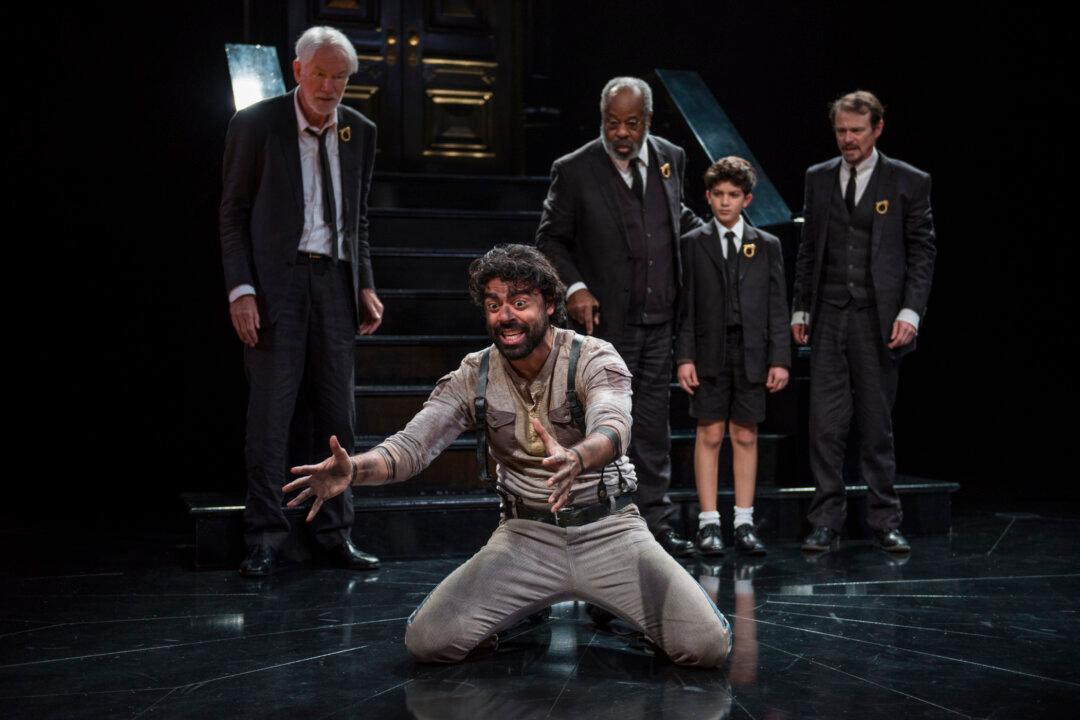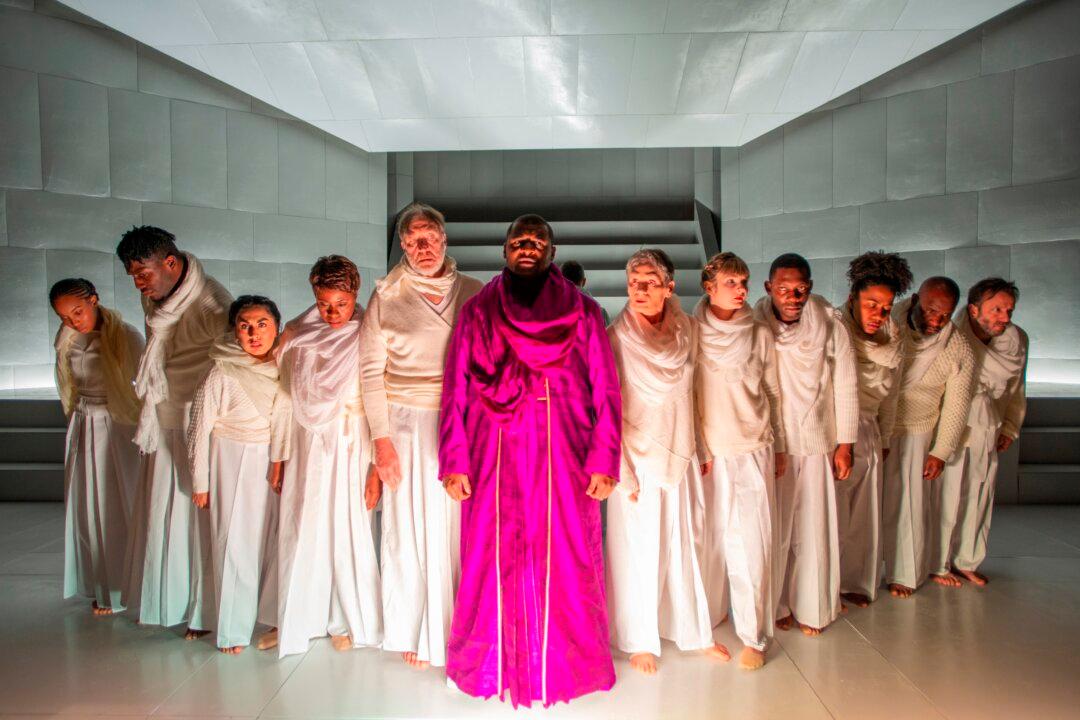CHICAGO—Court Theatre’s Nicholas Rudall has retranslated and juxtaposed three Greek tragedies, related by myth rather than by author, to create an artificial trilogy. It’s a noble effort, for he aims to deepen our appreciation of these classics. Unfortunately, the resulting production of the second play in the cycle—Aeschylus’s “Agamemnon”—lacks the nobility of Rudall’s intention.
In trying for a contemporary reading, director Charles Newell takes the very little stage time of the play’s namesake and deflates our expectations for the returning hero. Agamemnon’s few speeches reveal that he is untrustworthy and ready to use his power against any who might thwart him.

Sandra Marquez as Clytemnestra and Mark Montgomery as Agamemnon. The regal queen welcomes home her hesitant king. Michael Brosilow





